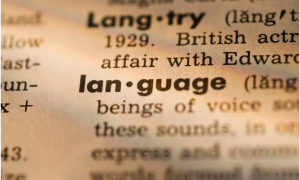ill, sick
这两个词共同的意思是“生病的”。它们的区别是:
ill只用作表语,而sick既可用作表语,也可用作定语。另外,作“恶心”解时只用sick,作“坏的,糟的”解时只用ill。例如:
She's visiting her sick uncle in hospital.她到医院去看望生病的叔叔。
The man looks pretty sick.这人看上去病得很重。
We began to feel sick as soon as the ship started to move.轮船刚刚开动,我们就觉得恶心。
ill, bad, evil, wicked
这组词共同的意思是“坏”。它们的区别是:
1.从所指范围上说, ill和bad范围最广,从稍有不利、不良到邪恶都可使用, evil和wicked指“邪恶”,程度较重。
2.从语气上说,从弱到强依次为bad, ill, evil , wicked。
3.evil多用于道德方面, wicked谴责意味最强。例如:
That woman has an evil tongue.那女人有一张惯于恶语中伤的嘴。
It's a wicked waste of money.这样浪费金钱简直是罪恶。
4.ill还可作“有病的,不健康的”解, bad还可作“不幸的,太可惜的”解。例如:
Too bad you couldn't come last night.真可惜,你昨晚没能来。
ill, unwell
这两个词都有“感觉不适”的意思。unwell指短期生病, ill时间相对较长。另外, unwell语气较ill委婉。例如:
I didn't go to the concert because I felt unwell that evening.因为感到不舒服,那天晚上我没去听音乐会。
bad,evil,ill,poor,wicked
这些形容词都含“坏的”之意。
bad含义广泛,指任何不好的或不合需要的品质。
evil语气比bad强,强调道德上的邪恶不良,含狡猾凶险或危害他人的意味。
ill与evil意义接近,但语气弱一些,常指道德或性质方面的不良。
poor普通用词,侧重指事物的质量或数量低于标准或不合要求。用于指天气与食品时可与bad通用。
wicked语气比evil强,指居心叵测,任意违反道德标准,有意作恶。
ill,sick
这两个形容词均有“生病的”之意。
ill在英国较常用,指“生病”时,通常作表语,不可作定语。在美国,ill用作表语时可与sick换用。
sick多用于美国,作“生病”解时,既可作表语,也可作定语。在英国,sick作表语,不指生病,而指“恶心、呕吐”。










